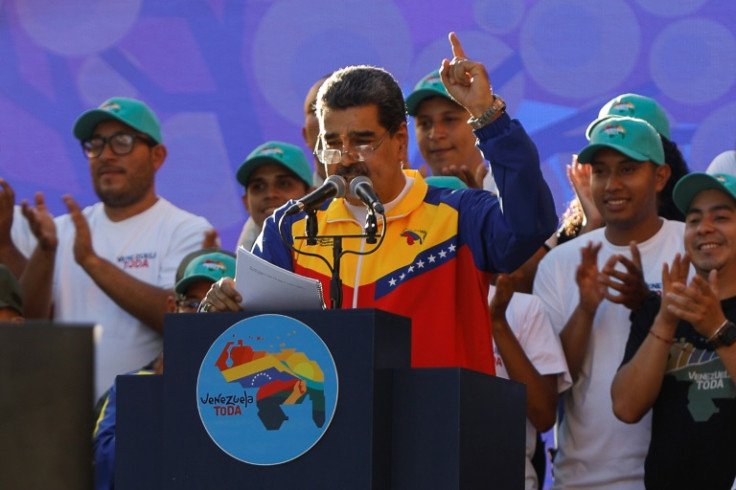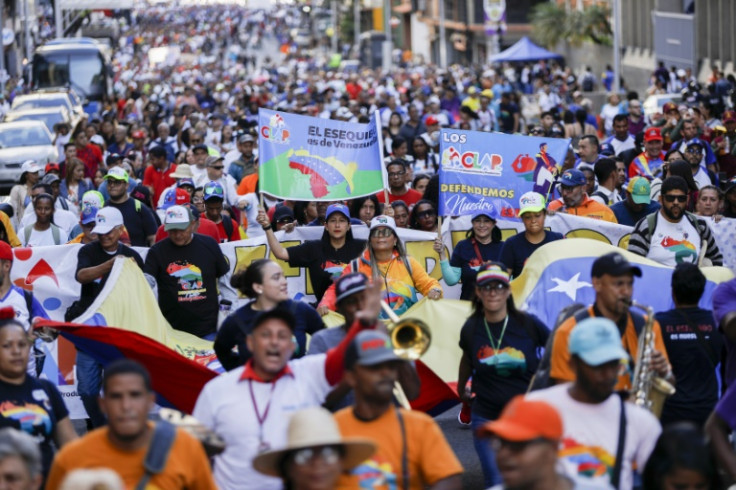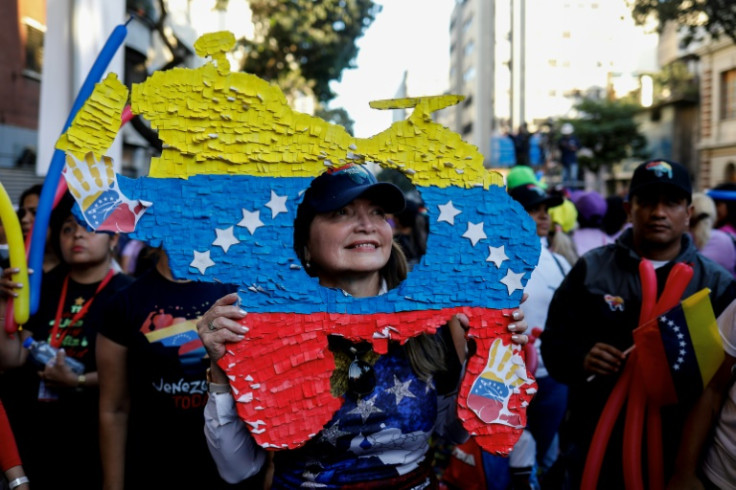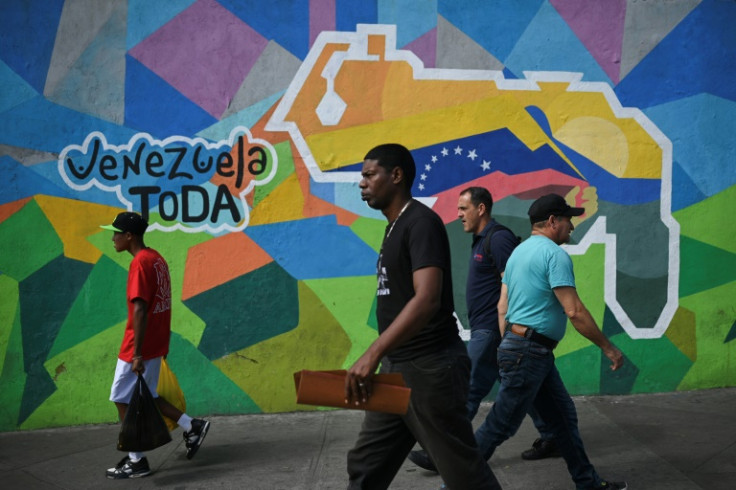
Venezuela on Sunday will hold a referendum that it hopes will strengthen its century-old claim to the oil-rich Essequibo territory controlled by neighboring Guyana.
"Essequibo is ours!" say posters plastered on walls lining the streets in Caracas, part of an intensive campaign by the government of President Nicolas Maduro.
"It's up to us to raise the flag of Essequibo and start a new phase in the historic recovery of this land," Maduro told a large crowd at a rally Friday in the Venezuelan capital.
The Maduro government has said it is not seeking justification to invade or annex the expansive territory, as some in Guyana, a former British colony, fear.
And regardless of the outcome when some 20 million Venezuelans vote, little will change in the short term. The people of Essequibo are not voting, and the referendum is nonbinding.
But tensions have been rising steadily since Guyana took bids in September for several offshore oil exploration blocks, and after a major new find was announced in October. Its petroleum reserves are similar to that of Kuwait, with the highest reserves per capita in the world.
Meanwhile, Maduro's government has sharpened its rhetoric and conducted military exercises in the area.
And Brazil has strengthened its own troop presence near the border with Venezuela, saying it is concerned by the "climate of tension."
Venezuela has claimed the huge territory for decades -- even as its 160,000 square kilometers (62,000 square miles) represent more than two-thirds of Guyana, and its population of 125,000 is one-fifth Guyana's total.
Caracas contends that the Essequibo River to the east of the region is the natural border between the two countries, as declared in 1777 under Spanish rule, and that the United Kingdom wrongly appropriated Venezuelan lands in the 19th century.
Guyana, however, asserts that the border was set in the British colonial era and was confirmed in 1899 by a court of arbitration. It says the International Court of Justice (ICJ), the UN's top judicial body, has validated this finding.
Guyana has asked the ICJ to block the referendum, saying it amounts to a violation of international rights -- but in vain.
On Friday, the ICJ called on Caracas to take no action that would modify the disputed lands -- but it did not mention the referendum. And Caracas had vowed to go ahead regardless.
"We believe that justice, not force, should be the arbiter of international disputes," Guyanese President Irfaan Ali said Friday from the United Arab Emirates, where he was attending the COP28 international climate summit.
Ali met there with British Foreign Minister David Cameron to discuss the controversy.
Maduro, for his part, lashed out at Ali on Friday, calling him "reckless (and) insolent" and suggesting he was working for US energy giant ExxonMobil.
The referendum Sunday includes five questions, including proposals for the creation of a Venezuelan province to be called "Guyana Essequibo," giving the inhabitants Venezuelan citizenship, as well as a call to reject the ICJ's jurisdiction.
The Maduro government expects an overwhelmingly positive result, strengthening its claim.
Opposition politicians, most of whom also support the claim, have generally been reticent about the referendum.
But Maria Corina Machado, who hopes to oppose Maduro in next year's presidential elections, has called the referendum a "distraction," saying it should be suspended and that sovereignty is not something you ask about -- "you just exercise it."
Maduro has mobilized his party and senior members of his government in a vigorous campaign for a resounding "yes" vote.
In the streets of Caracas, many Venezuelans said they are motivated to vote.
"We have a commitment to the country," said Marlis Palmes, a homemaker. "I congratulate those who agree. And let history be the judge of the others."










